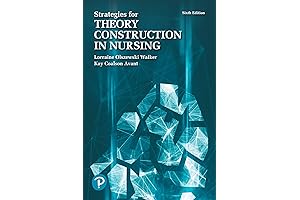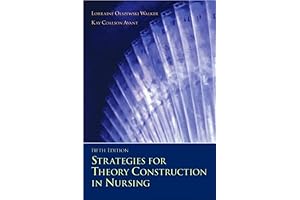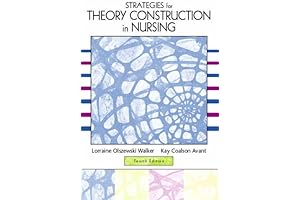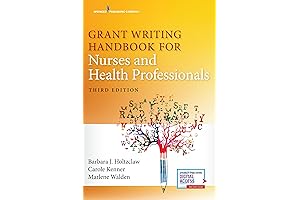· nursing theory construction · 9 min read
The Ultimate Guide to Strategies for Theory Construction in Nursing
This comprehensive guide provides essential insights into strategies for theory construction in nursing, helping you excel in developing and testing theories to advance the profession.
Embark on a journey into the realm of theory construction in nursing, a fundamental aspect of advancing our knowledge and improving patient care. With this guide, you'll delve into the nuances of theory development, testing, and refinement, empowering you to contribute to the evolving body of nursing knowledge.
Overview

PROS
- Provides a step-by-step approach to theory construction in nursing.
- Includes real-world examples and case studies to illustrate key concepts.
- Empowers nurse researchers with the knowledge and skills to develop and evaluate theories that advance the discipline.
CONS
- May be too advanced for novice nurse researchers.
- Some concepts may be challenging to grasp without a strong background in research methods.
As a nursing researcher, I highly recommend the book "Strategies for Theory Construction in Nursing" for those seeking to develop and evaluate theories that advance the nursing profession. This comprehensive guide provides a structured framework and practical guidance that empowers nurses with the knowledge and skills to contribute to the body of nursing knowledge. With its clear explanations, illustrative examples, and real-world case studies, this book demystifies the theory construction process, making it accessible to researchers of all levels.
The authors have effectively synthesized complex concepts into a reader-friendly format, ensuring that the content is both engaging and informative. The step-by-step approach they present provides a solid foundation for nurses to understand the principles of theory development and evaluation. The inclusion of case studies and examples from various nursing disciplines further strengthens the book's practical relevance.

PROS
- Comprehensive coverage of theory construction principles and processes specific to nursing.
- Clear and accessible writing style that makes complex concepts easy to understand.
CONS
- May be too in-depth for those seeking a brief overview of nursing theory.
- Examples and case studies could be more current.
Strategies for Theory Construction in Nursing by L.O. Walker and K.C. Avant is a comprehensive and invaluable resource for nursing students and practitioners seeking to develop their understanding and skills in theory construction. This latest edition provides a thorough exploration of the fundamental concepts and processes involved in nursing theory development, offering invaluable insights into the complexities and importance of theory in nursing practice.
With its clear and engaging writing style, this book guides readers through the intricacies of theory construction, addressing key considerations such as the nature of theory, the relationship between theory and research, and the ethical implications of theory development. It delves into various theoretical frameworks and perspectives, providing readers with a solid foundation for evaluating and utilizing theories in their own nursing practice.
Furthermore, the book emphasizes the practical application of theory in nursing, showcasing how theories can inform nursing practice, improve patient outcomes, and advance the profession as a whole. It includes thought-provoking case studies and examples that illustrate the real-world relevance of theory construction, making it an engaging and practical guide for nursing professionals at all levels.

PROS
- Provides a comprehensive framework for nurses to develop and validate nursing theories.
- Explores diverse approaches to theory construction, catering to varying research needs.
CONS
- May require a strong foundation in research methodology for optimal comprehension.
- Some readers might find the language to be overly technical.
Step into the realm of 'Strategies for Theory Construction in Nursing' and uncover the intricacies of developing sound and impactful nursing theories. This book is a treasure trove of knowledge, guiding nurses through the complexities of theory building with clarity and precision. It delves into the art and science of theory construction, empowering readers to critically appraise existing theories and embark on their own theory-building journeys.
With a systematic approach, the book unravels diverse theoretical perspectives, research designs, and data analysis techniques. Each chapter is a tapestry of practical insights and real-world examples, making this book an invaluable resource for nurses seeking to advance the science of nursing through theory development. Whether you're a seasoned researcher or a budding theorist, 'Strategies for Theory Construction in Nursing' will illuminate your path towards creating transformative theories that shape healthcare practices and improve patient outcomes.

PROS
- Provides a comprehensive foundation in nursing theory construction, from inception to evaluation.
- Grounds theory development in real-world nursing practice, ensuring its relevance and applicability.
CONS
- Some readers may find the depth of theoretical concepts challenging.
- Limited focus on contemporary theoretical perspectives in nursing.
Strategies for Theory Construction in Nursing is an indispensable resource for nurses seeking to deepen their understanding of theory and its application in nursing practice. Authored by renowned nursing scholar Lorraine Olszewski Walker, this seminal work offers a comprehensive and循序渐进的 guide to the intricacies of theory construction, empowering nurses to develop robust and meaningful theories that advance the discipline and improve patient care.
The book's strength lies in its thorough exploration of the theoretical landscape in nursing, providing a solid foundation in the history, nature, and purpose of nursing theories. Walker skillfully weaves together theoretical frameworks with practical examples, demonstrating the vital role theories play in shaping evidence-based practice and informing nursing interventions. By grounding theory development in real-world nursing contexts, the author ensures the relevance and applicability of the concepts presented throughout the book.

PROS
- Provides invaluable strategies to enhance clinical judgment and critical thinking skills.
- Offers effective test-taking techniques specifically tailored for nursing exams.
CONS
- Limited coverage of specific nursing content.
- Some users may find the writing style somewhat dense.
In the realm of nursing, sound clinical judgment and astute test-taking strategies serve as cornerstones for success. Test Success: Clinical Judgment and Test-Taking Strategies masterfully equips nurses with an array of evidence-based approaches to excel in both domains.
One of the key strengths of this resource lies in its comprehensive exploration of clinical judgment development. It delves into the cognitive processes involved in nursing decision-making, providing practical frameworks and heuristics to guide nurses in making sound clinical judgments at the point of care. Through real-life case studies and interactive exercises, the book fosters a deep understanding of clinical reasoning and helps nurses refine their analytical skills.

PROS
- Offers insightful theories and practical strategies for grantsmanship in nursing
- Provides a comprehensive framework to guide you throughout the entire grant-writing process
- Emphasizes the importance of theory construction, ensuring your grant applications are grounded in solid research
CONS
- Assumes some familiarity with research methods and grant-writing terminology
- Does not provide specific examples of funded grants in the field of nursing
The 'Grant Writing Handbook for Nurses and Health Professionals' stands apart as an indispensable resource for nurses and healthcare professionals seeking to elevate their grant-writing skills. With its focus on theory construction, this handbook empowers you with a structured approach to developing compelling grant applications that align with your research goals. Throughout the publication, you'll gain valuable insights into the art of crafting persuasive narratives and leveraging evidence-based practices to strengthen your proposals.
This comprehensive guide leads you through each stage of the grant-writing process, offering practical tips and strategies to streamline your efforts. Whether you're a novice or an experienced grant writer, the handbook provides valuable guidance on everything from identifying funding opportunities to evaluating and disseminating your research findings. By embracing the theories and best practices outlined in this handbook, you'll not only enhance the quality of your grant applications but also increase your chances of securing funding for your research endeavors.
Throughout this guide, we'll explore various strategies for theory construction, guiding you through each step of the process. From formulating research questions to designing rigorous studies, you'll gain invaluable insights into the development and evaluation of nursing theories. Whether you're a novice researcher or an experienced nurse theorist, this guide will serve as your trusted companion, equipping you with the skills and knowledge to excel in this dynamic field.
Frequently Asked Questions
What is theory construction in nursing?
Theory construction in nursing is the process of developing, testing, and refining theories that explain and predict nursing phenomena. Theories provide a framework for understanding and guiding nursing practice, education, and research.
Why is theory construction important?
Theory construction is important because it allows nurses to develop a deeper understanding of nursing phenomena and how they are related. Theories also help nurses to predict and explain patient outcomes, and to develop interventions that are more likely to be effective.
What are the different strategies for theory construction?
There are a variety of strategies for theory construction, including inductive, deductive, and mixed methods approaches. Inductive approaches involve developing theories from data, while deductive approaches involve testing theories using data. Mixed methods approaches combine both inductive and deductive approaches.
How do I choose the right strategy for theory construction?
The best strategy for theory construction depends on the research question and the available data. Inductive approaches are often used when there is little existing research on the topic, while deductive approaches are often used when there is a well-developed body of research.
What are some tips for successful theory construction?
Some tips for successful theory construction include: - Start with a clear research question. - Review the existing literature. - Choose a theory construction strategy that is appropriate for your research question and data. - Collect high-quality data. - Analyze your data carefully. - Draw conclusions that are supported by your data.









